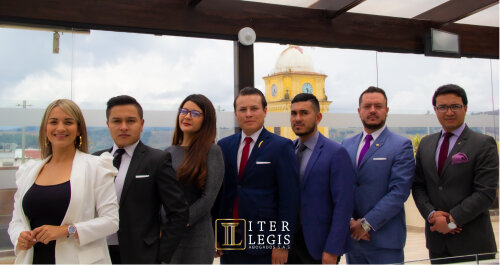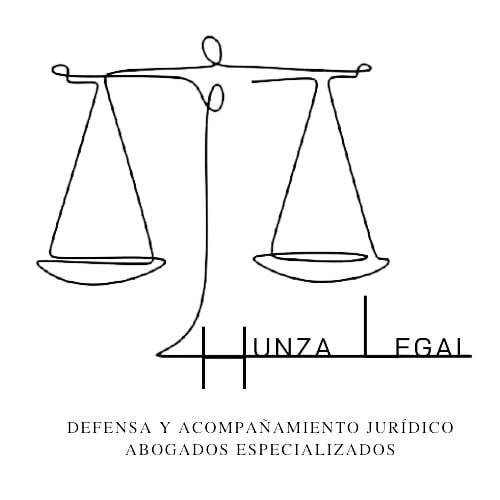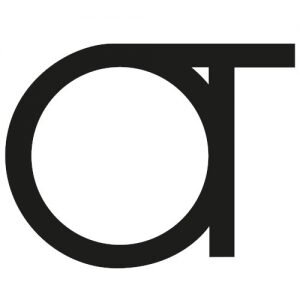Best Drug Crime Lawyers in Tunja
Share your needs with us, get contacted by law firms.
Free. Takes 2 min.
List of the best lawyers in Tunja, Colombia
About Drug Crime Law in Tunja, Colombia
Drug crime in Tunja, Colombia, falls under the scope of national drug laws regulated by the Colombian Penal Code and various legislative decrees. Tunja, as the capital of the Boyacá Department, enforces these laws strongly due to ongoing national efforts to combat drug trafficking, abuse, and related criminal activity. Drug crimes broadly involve the possession, production, trafficking, distribution, and consumption of illegal substances such as cocaine, marijuana, and synthetic drugs. Even small-scale involvement can result in significant legal consequences, making it crucial for individuals to understand both local law enforcement practices and the legal process if they face charges connected to drugs.
Why You May Need a Lawyer
Getting involved with drug crime laws in Tunja can be both stressful and complicated. There are many situations where you may need a lawyer, such as:
- Being arrested for possession of illegal substances
- Facing investigation for drug trafficking, even if not yet charged
- Being accused of cultivating or manufacturing drugs
- Charged with transporting or distributing drugs
- Involvement in a case of prescription drug misuse or forgery
- Detained for being under the influence in public or during a crime
- Being a minor or parent of a minor involved in a drug-related incident
- If non-Colombian and facing drug charges, which can involve immigration consequences
- Seeking to expunge or resolve past drug convictions
- Desiring to understand your rights in drug crime investigations or legal processes
Legal representation ensures your rights are respected, the charges are properly addressed, and that you receive the best possible defense. A lawyer can also help negotiate plea deals, protect you from abuses, and clarify complex procedures.
Local Laws Overview
Drug crimes in Tunja are governed by national law, primarily the Colombian Penal Code (Código Penal) and Law 30 of 1986, the National Narcotics Statute. Key elements include:
- Possession - Personal use of small quantities may be differentiated from trafficking, but possession of larger quantities often leads to the assumption of intent to distribute.
- Trafficking - Carrying, transporting, or collaborating in drug sales can lead to severe penalties including long prison sentences.
- Cultivation and Manufacture - Growing, producing, or processing plants or substances for drug use is a criminal offense.
- Consumption - Small-scale consumption is decriminalized to some extent, but public consumption or creating a public hazard can lead to penalties.
- Aggravating Circumstances - Crimes involving minors, violence, organized crime, or large-scale logistics attract harsher sentences.
- Legal Procedures - Legal processes may involve arrest, investigation, preventive detention, and trial. Pre-trial and plea arrangements are possible.
Local law enforcement is vigilant about drug offenses, given Colombia’s international commitments and public policies to control substance abuse and trafficking. Penalties can range from fines and community service to long-term imprisonment.
Frequently Asked Questions
What happens if I am caught with a small amount of drugs for personal use?
Colombian law distinguishes between possession for personal use and possession with intent to distribute. Small amounts, often termed as "minimum dosis personal," may not lead to prison but could result in confiscation and warnings. However, possessing even a little more can be construed as intent to traffic, which has heavier penalties.
Can I go to jail for marijuana possession in Tunja?
Yes, if caught with more than the legally permitted amount for personal use or if there is suspicion of trafficking, you could face jail time. Even for personal use, consuming marijuana in public or near schools can invite legal sanctions.
Are drug offenses considered serious crimes in Colombia?
Yes, drug crimes are treated as very serious, attracting strict law enforcement. Trafficking, production, and distribution offenses result in long prison sentences and substantial fines.
What should I do if I am arrested on drug charges?
You have the right to remain silent and to an attorney. Contact a lawyer immediately to guide you. Do not sign documents or statements without legal advice.
Can foreigners be expelled from Colombia for drug crimes?
Yes, non-citizens convicted of drug crimes may be subject to deportation after serving their sentence. Immigration authorities handle each case individually.
Do minors face the same penalties as adults?
No, minors are judged under a different juvenile justice system with a focus on rehabilitation, but drug offenses are still taken seriously and can include mandatory counseling or detention.
How long do drug crime investigations in Tunja typically take?
It depends on the complexity of the case. Simple possession charges may move quickly, but trafficking or organized crime investigations can take several months or longer.
Is plea bargaining available in drug crime cases?
Yes, in many cases plea deals can be negotiated depending on the circumstances and charges. Your lawyer can guide you about available options.
Can I have my record cleared after a drug conviction?
Colombian law allows for expungement or reduction of criminal records in certain situations, mainly for lesser offenses and after a certain period. A lawyer can explain the options in your specific case.
Who can I talk to for free legal advice about a drug crime charge?
Several governmental and non-profit organizations offer free legal aid. It is important to reach out early to discuss your situation and understand your rights.
Additional Resources
If you need information or support regarding drug crime in Tunja, consider contacting the following:
- Defensoría del Pueblo (Ombudsman) - Offers legal advice and protects citizens’ rights.
- Oficina de Asistencia Legal Gratuita (Legal Aid Office) - Provides free legal support in criminal matters.
- Fiscalía General de la Nación (Public Prosecutor’s Office) - Handles drug crime investigations and prosecutions in Boyacá.
- Policía Nacional de Colombia - Local police stations provide information about arrest procedures.
- ICBF (Instituto Colombiano de Bienestar Familiar) - Offers special support for minors and families affected by drug crime.
You may also find general legal guidance at the local justice chamber (Casa de Justicia) in Tunja.
Next Steps
If you or someone you know is facing drug crime charges or police investigations in Tunja, it is critical to act quickly:
- Contact a qualified criminal defense lawyer as soon as possible.
- Gather any relevant documents or evidence regarding your case.
- Do not discuss the case with law enforcement or third parties without legal representation.
- If you cannot afford private counsel, request free legal aid from the local Defensoría del Pueblo or Legal Aid Office.
- Stay informed about your legal rights and do not sign any documents without advice.
Facing a drug crime accusation is a serious matter, but proper legal guidance can make a significant difference in the outcome. Always prioritize your rights and consult with local professionals who understand the law in Tunja, Colombia.
Lawzana helps you find the best lawyers and law firms in Tunja through a curated and pre-screened list of qualified legal professionals. Our platform offers rankings and detailed profiles of attorneys and law firms, allowing you to compare based on practice areas, including Drug Crime, experience, and client feedback.
Each profile includes a description of the firm's areas of practice, client reviews, team members and partners, year of establishment, spoken languages, office locations, contact information, social media presence, and any published articles or resources. Most firms on our platform speak English and are experienced in both local and international legal matters.
Get a quote from top-rated law firms in Tunja, Colombia — quickly, securely, and without unnecessary hassle.
Disclaimer:
The information provided on this page is for general informational purposes only and does not constitute legal advice. While we strive to ensure the accuracy and relevance of the content, legal information may change over time, and interpretations of the law can vary. You should always consult with a qualified legal professional for advice specific to your situation.
We disclaim all liability for actions taken or not taken based on the content of this page. If you believe any information is incorrect or outdated, please contact us, and we will review and update it where appropriate.










